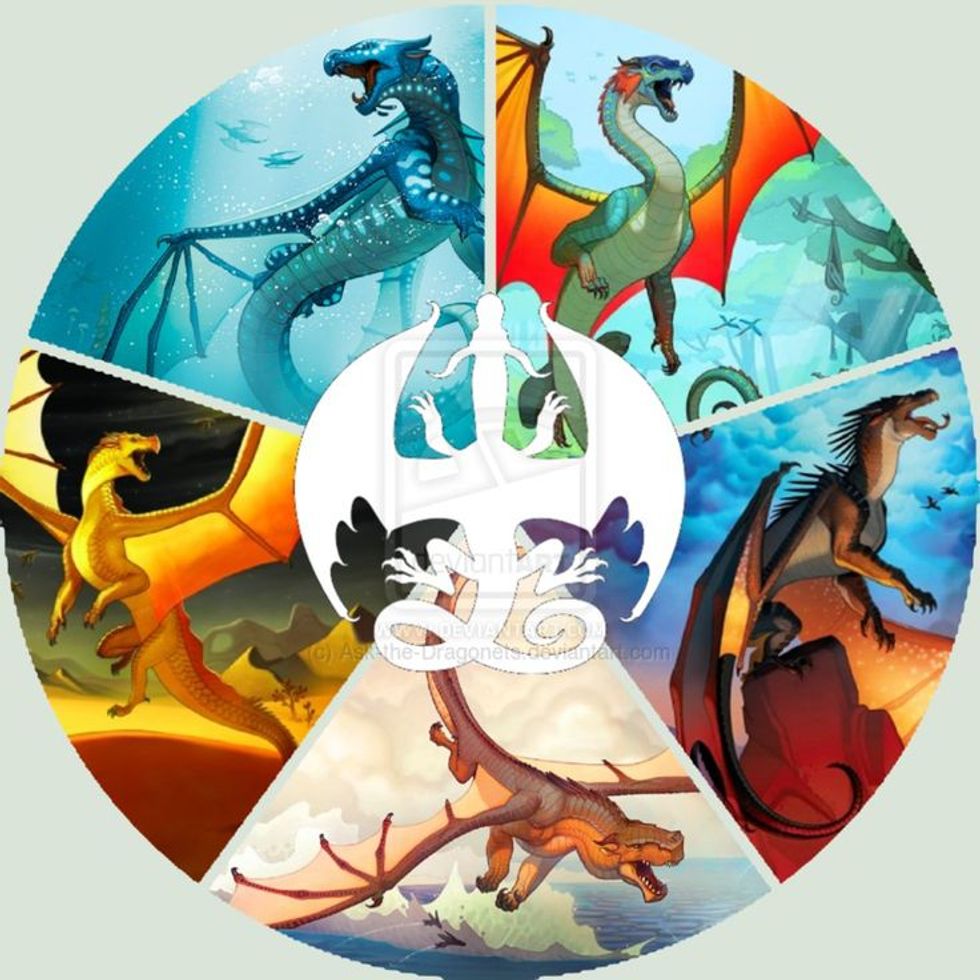Wings of fire is a children's series about a group of five dragonets (young dragons) who are selected according to the specifications of a prophecy to end what is essentially the dragon equivalent of a world war. Immediately after hearing this statement, most adults and many teenagers think, "That's ridiculous," or "I'm too old for that." Even I was hesitant to pick up the series at first, even though I love fantasy and dragons and was familiar with the author. However, I decided to give the books a chance, and I was so glad I did. They went over and above my expectations in all areas, and continued to do so all the way through the ending of the first arc, in book 5.
One of the best things about Wings of Fire is the characters. Great characters are difficult to find in any genre, but they're especially rare in middle-grade fiction. Many middle-grade authors seem to think their characters don't have to be very interesting, because they're writing for a younger audience who won't know the difference. The characterization in this series, though, is outstanding. Every single one is well-thought-out, each with their own voice, motivations, and inner conflicts that grow deeper as their story progresses. This isn't confined to the main group either; even villains and minor characters that only appear for a few scenes have a depth that I can't remember seeing in any other children's book.
The world of Wings of Fire is interesting as well, though it isn't quite as detailed as the characters are. In Pyrrhia there are seven dragon tribes, each with their own habitats, abilities, and characteristics. Humans exist in this world, but they are nearly extinct after a mysterious event called 'The Scorching,' which is apparently when the dragons took control. Dragons and Humans can't communicate, but it is hinted that they could potentially get along, and even be equals, if they understood one another. This concept is something I've never come across before. Most of the time, dragons are either evil and nearly all-powerful, or they serve the humans. The idea of dragons and humans as equal races that misunderstand each other is a fascinating one to me.
Wings of Fire is also unique for a children's book in that it doesn't talk down to the reader. It deals with themes that are important for all ages, such as loyalty to family, kindness, mercy, leadership, overcoming fear and doubt, learning to move on after past mistakes, and so on. All of this is presented in an easily digestible format, so as to be accessible to kids, but characters often suffer on the path to learning. They have faults, they make mistakes, and those mistakes can hurt them and their loved ones. This conflict makes the story captivating to a much wider audience than just children.
All of these qualities make this series one of my all-time favorites. I highly recommend this series to all lovers of fantasy, especially those looking for something to share with their family. Wings of Fire is a great story, better in my opinion than most adult books I've seen, but in order to see it you have to be willing to see more than just a 'children's book.'















